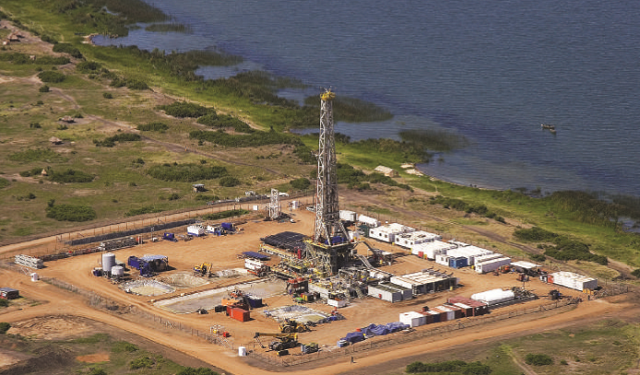In a surprising turn of events, China has emerged as the savior for Uganda’s ambitious oil pipeline project, stepping in after major Western banks withdrew their support amidst mounting environmental concerns.
The East African Crude Oil Pipeline (EACOP), slated to connect Uganda’s Lake Albert oilfields to Tanzania’s Indian Ocean coast, now hinges on Chinese lenders to provide the lion’s share of the required US$3 billion debt.
Irene Bateebe, the Permanent Secretary of Uganda’s Ministry of Energy and Mineral Development, revealed that discussions with the China Export & Credit Insurance Corporation (Sinosure) and the Export-Import Bank of China (Eximbank) are nearing completion.
Bateebe emphasized that Sinosure and Eximbank are set to contribute over 50% of the debt, marking a significant milestone in the project’s progress.
“We are at the tail-end of the discussions [with Chinese lenders] for financial close. We are confident that by the end of October of this year, we will close the debt component and we would have mobilised most of the funding for the project,” Bateebe said on Friday.
The Western financial institutions, once enthusiastic backers of the venture, have dramatically reversed their stance. Citing fears of irreparable environmental damage and allegations of human rights abuses, they chose to sever ties with the project.
The construction and operation of the pipeline are believed to pose grave threats to vital ecosystems, prompting widespread concerns about potential ecological disasters and loss of biodiversity.
The year 2022 witnessed a tumultuous struggle for TotalEnergies, the driving force behind the EACOP. South African banks, Deutsche Bank, Citi, JPMorgan Chase, Wells Fargo, and Morgan Stanley all unequivocally distanced themselves from the project.
By October of the same year, Intesa Sanpaolo of Italy, DZ Bank of Germany, and Natixis of France added their names to the ever-growing list of institutions refusing direct financial support.
This staggering withdrawal of support culminated in a total of 24 banks publicly disassociating themselves from the venture.
Additionally, PR firm Edelman severed ties with Standard Bank due to its involvement in the project, further exacerbating the challenges faced by TotalEnergies. The European Parliament also added its voice to the chorus of dissent, calling for an immediate halt to drilling in protected areas.
As 2023 dawns, financial closure for the EACOP remains elusive, lagging years behind schedule.
The fate of this high-stakes venture now rests firmly in the hands of Chinese lenders, as Uganda forges ahead in its pursuit of oil riches amidst a backdrop of global skepticism and environmental apprehension.
Do you have a story in your community or an opinion to share with us: Email us at editorial@watchdoguganda.com












